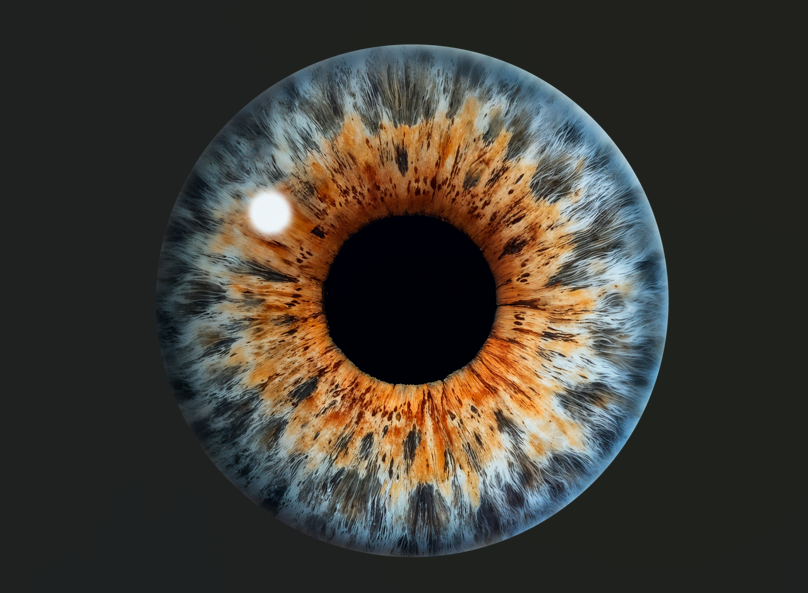Understanding Age-Related Macular Degeneration called AMD

What is Age-Related Macular Degeneration (AMD)?
Age-related macular degeneration (AMD) is a progressive eye condition that affects the macula, the part of the retina responsible for central vision and the ability to see fine details. As the population ages, AMD has become one of the leading causes of vision loss among individuals over 50. There are two primary forms of AMD: dry AMD, which is more common, and wet AMD, which is less common but more severe.
Effects of AMD
AMD primarily impacts central vision, making it difficult to read, recognize faces, and perform tasks that require fine visual acuity. Individuals may experience symptoms such as:
– Blurry or distorted vision
– Dark or empty spaces in the center of vision
– Difficulty adapting to low light
– Changes in color perception
While AMD does not cause complete blindness, the vision impairment can significantly affect a person’s quality of life and independence.
Causes of AMD
The exact cause of AMD is not fully understood, but several factors contribute to its development:
– Age: The risk increases as people age, especially after 50.
– Genetics: Family history plays a significant role; those with relatives who have AMD are at higher risk.
– Environmental Factors: Increased exposure to sunlight, particularly ultraviolet light, may be a contributing factor.
– Lifestyle Choices: Smoking, obesity, and poor diet (low in antioxidants and vitamins) can increase risk.
Recognizing AMD
Early detection of AMD is crucial. Regular eye exams allow for monitoring of vision changes. An eye care professional may use specific tests such as:
– Amsler grid test to check for visual distortions.
– Fundus photography or Optical Coherence Tomography (OCT) to examine the retina’s structure.
Treatments for AMD
Dry AMD
Currently, there is no cure for dry AMD, but certain treatments can help slow its progression:
– Vitamin Supplements: The Age-Related Eye Disease Study (AREDS2) found that high doses of antioxidants and zinc may reduce the risk of progression.
– Lifestyle Modifications: Quitting smoking, maintaining a healthy diet rich in leafy greens, and regular exercise can potentially reduce risk.
Wet AMD
Wet AMD often requires more immediate intervention:
– Anti-VEGF Injections: Medications like ranibizumab (Lucentis) and aflibercept (Eylea) are injected into the eye to inhibit abnormal blood vessel growth.
– Photodynamic Therapy: This involves using a light-activated drug to target and destroy abnormal blood vessels.
– Laser Surgery: A laser is used to destroy abnormal blood vessels.
Preventive and Supportive Treatment
While there is currently no definitive way to prevent AMD, certain supportive measures can help maintain overall eye health:
– Nutrition: A diet high in antioxidants, omega-3 fatty acids, and vitamins C and E may offer protective benefits.
– Clinical Supported Supplements: Supplements formulated with the nutrients identified in the AREDS2 study, such as lutein and zeaxanthin, may provide additional support for eye health and help mitigate the progression of AMD.
– Regular Eye Exams: Monitoring changes in vision as well as retinal health can facilitate early intervention.
Recent Advances in AMD Treatment
Recent research is focused on new methods to treat AMD, including:
– Gene Therapy: Potential treatments are being developed that target genetic factors contributing to AMD.
– Stem Cell Therapy: Research is ongoing in using stem cells to repair damaged retinal cells.
– New Drug Formulations: Ongoing clinical trials for new forms of anti-VEGF drugs and combination therapies show promise.
Conclusion
Age-related macular degeneration significantly impacts many older adults’ vision and quality of life. While there is currently no cure, understanding the disease, recognizing early signs, and pursuing available treatments can help manage its effects. Preventive strategies, including proper nutrition and supported supplements, play a critical role in maintaining eye health and potentially slowing the progression of AMD. Regular consultations with eye care professionals remain essential in safeguarding vision as one ages.
(Note: This article briefly overviews the subject and does not provide medical advice. If you need more information about Age-related macular degeneration (AMD), consult a qualified professional.)



